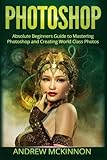All Categories
*Price and Stocks may change without prior notice
*Packaging of actual item may differ from photo shown
- Electrical items MAY be 110 volts.
- 7 Day Return Policy
- All products are genuine and original








About Foundation And Earth
Product Description The fifth novel in Isaac Asimov’s classic science-fiction masterpiece, the Foundation series THE EPIC SAGA THAT INSPIRED THE UPCOMING APPLE TV+ SERIES FOUNDATION Golan Trevize, former Councilman of the First Foundation, has chosen the future, and it is Gaia. A superorganism, Gaia is a holistic planet with a common consciousness so intensely united that every dewdrop, every pebble, every being, can speak for all—and feel for all. It is a realm in which privacy is not only undesirable, it is incomprehensible. But is it the right choice for the destiny of mankind? While Trevize feels it is, that is not enough. He must know. Trevize believes the answer lies at the site of humanity’s roots: fabled Earth . . . if it still exists. For no one is sure where the planet of Gaia’s first settlers is to be found in the immense wilderness of the Galaxy. Nor can anyone explain why no record of Earth has been preserved, no mention of it made anywhere in Gaia’s vast world-memory. It is an enigma Trevize is determined to resolve, and a quest he is determined to undertake, at any cost. From the Inside Flap The fifth novel in Asimov's popular Foundation series opens with second thoughts. Councilman Golan Trevize is wondering if he was right to choose a collective mind as the best possible future for humanity over the anarchy of contentious individuals, nations and planets. To test his conclusion, he decides he must know the past and goes in search of legendary Earth, all references to which have been erased from galactic libraries. The societies encountered along the way become arguing points in a book-long colloquy about man's fate, conducted by Trevize and traveling companion Bliss, who is part of the first world/mind, Gaia. From the Back Cover The fifth novel in Asimov's popular Foundation series opens with second thoughts. Councilman Golan Trevize is wondering if he was right to choose a collective mind as the best possible future for humanity over the anarchy of contentious individuals, nations and planets. To test his conclusion, he decides he must know the past and goes in search of legendary Earth, all references to which have been erased from galactic libraries. The societies encountered along the way become arguing points in a book-long colloquy about man's fate, conducted by Trevize and traveling companion Bliss, who is part of the first world/mind, Gaia. About the Author Isaac Asimov began his Foundation series at the age of twenty-one, not realizing that it would one day be considered a cornerstone of science fiction. During his legendary career, Asimov penned more than 470 books on subjects ranging from science to Shakespeare to history, though he was most loved for his award-winning science-fiction sagas, which include the Robot, Galactic Empire, and Foundation series. Named a Grand Master of Science Fiction by the Science Fiction Writers of America, Asimov entertained and educated readers of all ages for close to five decades. He died in 1992. Excerpt. © Reprinted by permission. All rights reserved. 1 THE SEARCH BEGINS 1. "Why did I do it?" asked Golan Trevize. It wasn't a new question. Since he had arrived at Gaia, he had asked it of himself frequently. He would wake up from a sound sleep in the pleasant coolness of the night and find the question sounding noiselessly in his mind, like a tiny drumbeat: Why did I do it? Why did I do it? Now, though, for the first time, he managed to ask it of Dom, the ancient of Gaia. Dom was well aware of Trevize's tension for he could sense the fabric of the Councilman's mind. He did not respond to it. Gaia must in no way ever touch Trevize's mind, and the best way of remaining immune to the temptation was to painstakingly ignore what he sensed. "Do what, Trev?" he asked. He found it difficult to use more than one syllable in addressing a person, and it didn't matter. Trevize was growing somewhat used to that. "The decision I made," said Trevize



























